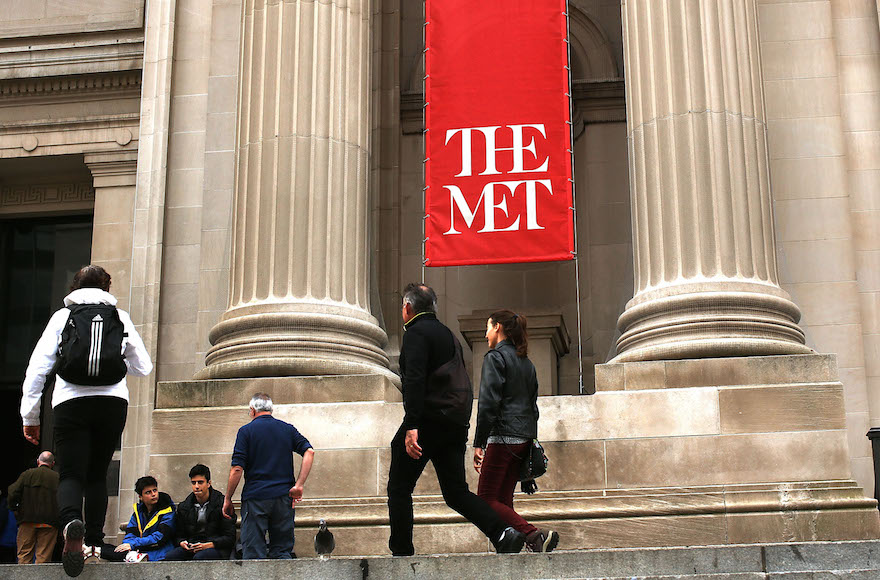(JTA) — The Metropolitan Museum of Art in New York City announced that it would not accept new gifts from members of the Sackler family linked to the company that produces Oxycontin, which is accused of fomenting the opioid crisis.
The decision, announced on Wednesday and first reported by the New York Times, follows similar announcements by the Guggenheim Museum in New York and the Tate Museum in London.
Also on Wednesday, the American Museum of Natural History said that it has stopped accepting Sackler donations.
“The museum takes a position of gratitude and respect to those who support us, but on occasion, we feel it’s necessary to step away from gifts that are not in the public interest, or in our institution’s interest,” said Daniel H. Weiss, the president of the Met, told the New York Times. “That is what we’re doing here.”
The museum will not, however remove the family’s name from its Sackler Wing, which houses the famed Temple of Dendur, Weiss told the newspaper.
Sackler family members with ties to Purdue Pharma said in a statement that “while the allegations against our family are false and unfair, we understand that accepting gifts at this time would put the Met in a difficult position.”
Sackler family contributions to the Met go back about 50 years, according to The Times.
Some members of the Sackler family have been accused of directing their pharmaceutical firm, Purdue Pharma, to mislead doctors and patients about the dangers of the opioid painkiller Oxycontin produced by the company.
The family has supported Tel Aviv University’s School of Medicine and the Jewish Museum in Berlin.
More than 200,000 people have died in the United States from overdoses involving prescription opioids, and Purdue Pharma has been the target of numerous lawsuits.
Pennsylvania on Tuesday became the 39th state to sue Purdue Pharma for damages caused by the over-prescription of Oxycontin.
JTA has documented Jewish history in real-time for over a century. Keep our journalism strong by joining us in supporting independent, award-winning reporting.






